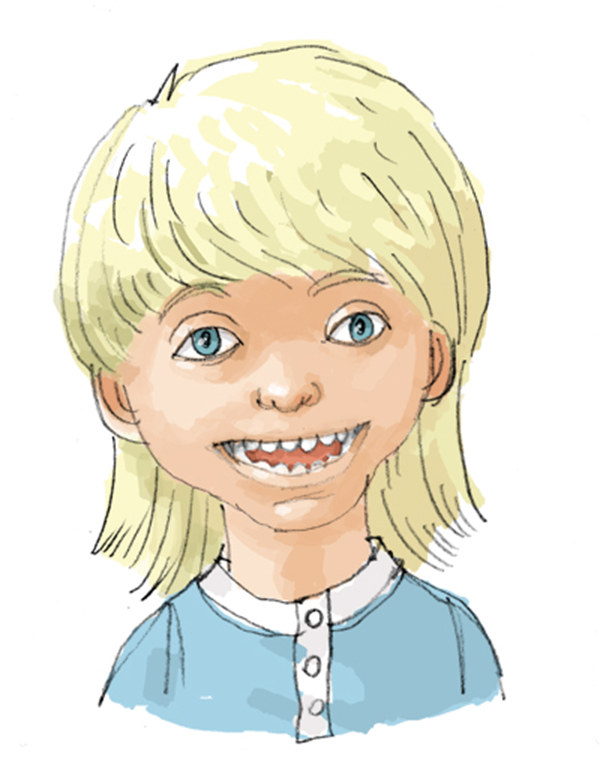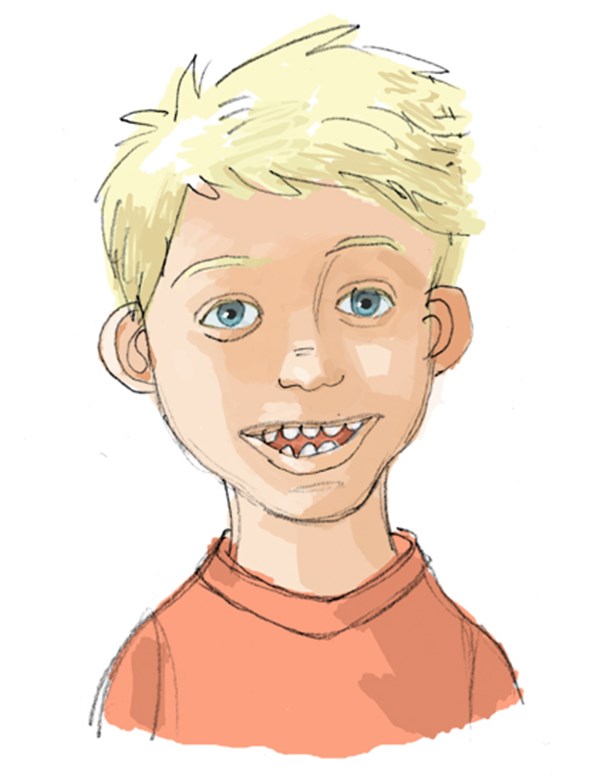Angelman syndrome
Codes
ICD-10: Q93.5
ORPHA: 72
General information
Estimated occurrence
8:100,000 live births.Cause
Genetic origin, often spontaneous mutation. Most of these children have some deletion of chromosomal material in the chromosome 15 inherited from the mother.General symptoms
Delayed psychomotor development. Muscle laxity and balance problems. Severe mental retardation. Epilepsy. Abnormal language development, where understanding is often superior to the ability to express things in speech or using alternative means of communication. Other characteristics are hyperactivity and stereotypic behavior.Images
Characteristic facial features in Angelman syndrome:
Small head. Flat back of the head. Wide mouth. Protruded tongue. Widely spaced teeth. Open bite.


Orofacial/odontological symptoms
There is a particular appearance characteristic for the diagnosis. Widely-spaced teeth are common, as are malocclusions in the form of a postnormal or prenormal bite and an open, frontal bite. Daytime tooth grinding is common. Many like to suck and bite their hands and objects. Oral motor skills are poorly developed, and there is muscular laxity (hypotonia). Sucking, eating and drinking difficulties and drooling are all frequent problems. Most individuals with Angelman syndrome never acquire speech.Advice on follow-up and treatment
- It is important that individuals with Angelman syndrome receive dental preventive treatment, with extra prophylactic care and information on oral hygiene from an early age.
- Regular check-ups of dental and jaw development. Orthodontist should be consulted when needed.
- Tooth grinding should be followed up, and be managed with a splint when necessary.
- Oral motor skill training and extra stimulation are justified.
- Communication skills training is frequently essential.
Sources
National Board of Health and WelfareUpdated: 2019-11-12 14:21






